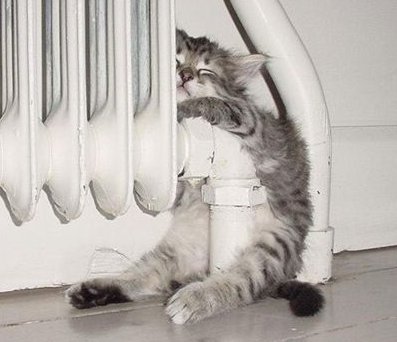Texte d'après "Paws for pets. A new kitten" de Gail Golab, site de l'AVMA http://www.avma.org/careforanimals/pawsforpets/kitten.asp
question 1

Lisez attentivement ce texte.
Roaming cats are prime candidates for fights with other animals, traffic accidents, and communicable diseases from other cats. Their life span can be expected to be considerably shorter as a result. Many cats are strictly indoor pets and are perfectly content, as long as they have access to a clean litter box and fresh water at all times. If your pet must go outside, make sure that the kitten is old enough to manage on its own, that it is identified in some fashion (microchip ID or breakaway collar and tag), current on vaccinations, and not outdoors in extremely cold, hot, or inclement weather
Litter training:
A kitten will housebreak itself. Provide it with a clean litter box and make sure the kitten knows where it is located. Edges of boxes should not be too deep for a kitten to navigate and the box should be kept scrupulously clean. Choice of litter (eg, clay, sand, recyclable paper) is up to the kitten owner, although some cats appear to have substrate preferences. Many veterinarians recommend staying away from litters with deodorant and baking soda additives as they can irritate your cat's respiratory tract. If your kitten (or cat) isn't using the litter box reliably, it could be because of dirty litter, illness, litter preference, or psychological stress.
Meals:
Feed a high quality diet designed for kittens. Your veterinarian is your best source for information regarding an appropriate diet for your kitten. Dry foods are usually most economical and have the advantage of providing a rough surface that will help reduce plaque and tartar buildup on your kitten's teeth, but canned foods can be fed/supplemented if desired. Amount fed will depend on the diet, as well as the age, size, and activity level of your kitten. Kittens can be fed free-choice or at set mealtimes.
Health examinations and vaccinations:
Have your kitten examined by a veterinarian to ensure that it has no major health problems. Your kitten will need a series of vaccinations for respiratory disease (rhinotracheitis virus, calicivirus, and chlamydia) and panleukopenia. Vaccinations are usually given at 3 week intervals from approximately 6 to 15 weeks of age. Blood testing for feline leukemia virus and feline immunodeficiency virus is recommended and the first of 2 feline leukemia vaccines can be given at approximately 12 weeks of age (booster is usually 3 weeks later). At 15-16 weeks old, the kitten can receive its rabies vaccination. Your veterinarian may also recommend a vaccination for feline infectious peritonitis. This disease is almost always fatal, but the risk of getting the disease in most cases is relatively low. Kittens should be checked for intestinal parasites (2 stool samples 3 weeks apart), fleas, and ear mites and appropriate medications given for these problems. Your veterinarian may also recommend a preventative for heartworm disease, which is more commonly associated with dogs, but can also affect cats. These are general guidelines. Remember, your kitten is an individual and need for specific vaccinations, timing of boosters, and risk factors for disease are best assessed by your veterinarian.
Spaying/neutering:
If you don't plan to breed, spay or neuter your kitten. Spaying and neutering decrease incidence of some tumors and reproductive infections, both of which require more serious (and costly) surgical procedures. A male cat must be neutered if it will be a housepet because the strong urine odor of unneutered males will make your cat an unacceptable housemate. Discuss with your veterinarian the most appropriate time to spay or neuter your kitten.
|